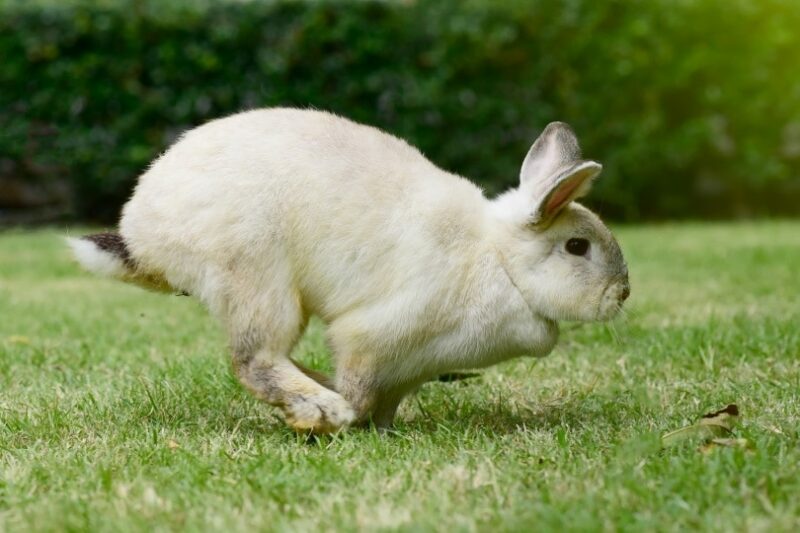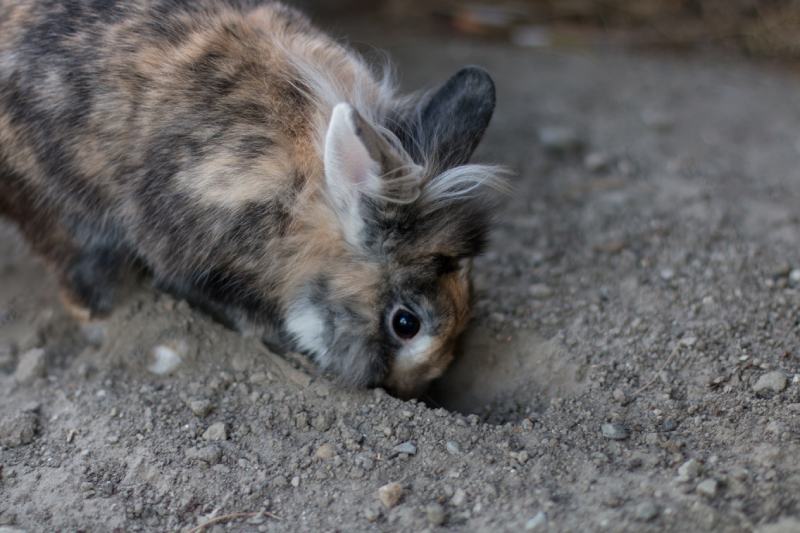How Much Do Rex Rabbits Cost? 2024 Price Guide

Updated on
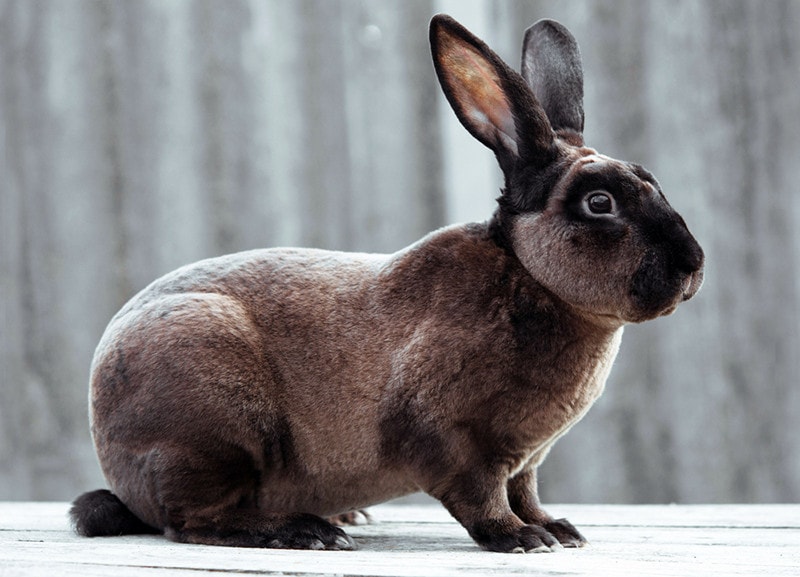
Click to Skip Ahead
Once upon a time, the Rex Rabbit was an incredibly expensive investment, costing a reported $1,500 in the 1930s. However, their popularity means that there is a much greater supply, and with greater supply has come reduced costs. Modern rabbit enthusiasts can pay as little as $25 for a Rex. However, some species of Rex Rabbit do cost more. The Mini Rex, for example, can cost anywhere from $50 to $250, according to age and whether the rabbit is a pet or show standard. Rabbits are social animals, which means that most experts encourage owners to keep at least two.
As with most pets, the cost of purchasing the animal is only a fraction of the total amount that the owner will spend on the animal throughout its life. You will also need to factor in the cost of buying a hutch and run, as well as other equipment. And ongoing costs include food, treats, and even toys. You will also likely have some veterinary costs to cover throughout a Rex Rabbit’s lifetime, although they aren’t known for being especially prone to illness.
Initial costs will amount to around $100 to $500, with ongoing costs around $40 and $100 per month for a single rabbit.
Bringing Home a New Rex Rabbit: One-Time Costs
When most people think of the initial cost of getting a pet, they think of the cost of the animal itself. However, this only makes up a portion of the cost, especially with a pet like a rabbit, which needs an enclosure and a run. And because rabbits are social animals and can become anxious and depressed if they are kept as solitary animals, you should also consider the cost of buying two or more rabbits.
There are different types of Rex Rabbit, each with its own price range, and you can also choose between pet-standard and show-standard rabbits, with those bred for showing being more expensive than pet stock.
Free
Rabbits breed quickly and in large numbers, which means that owners with unneutered rabbits can find themselves inundated with kits. If you know somebody that keeps Rex Rabbits, it is worth asking whether they have any young kits that need homing. It is also worth checking local groups, looking in veterinarian offices, and even checking local social media and online groups. Some owners may be willing to give away some of their Rex Rabbits if they have found themselves with a surprise litter.
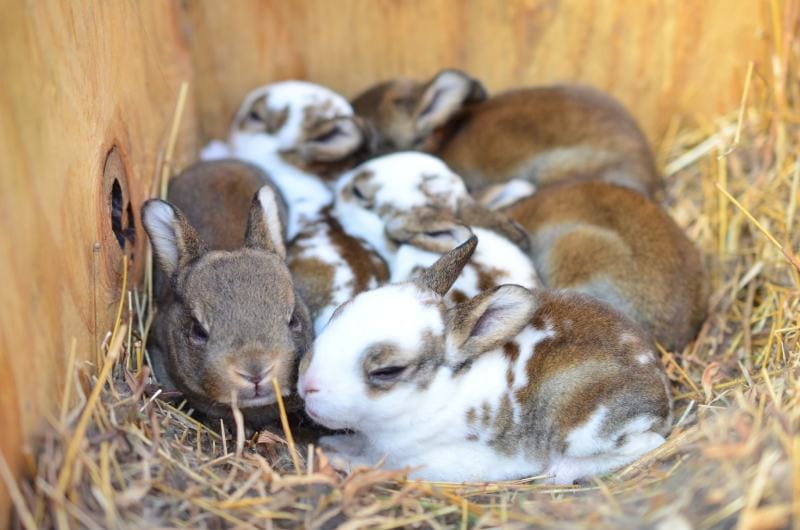
Adoption
- $0–$50
It may even be possible to find free Rex Rabbits at some sanctuaries or rescues. Such is the stock of unwanted rabbits that most sanctuaries struggle for room and have more rabbits than they can reasonably rehome. Older rabbits are more difficult to rehome because most prospective adopters are looking for young rabbits. Even if a rescue isn’t giving a rabbit away, you will usually find that the adoption fee is lower than the cost of buying a rabbit, and you are potentially saving that rabbit’s life, too. Adoption fees vary from rescue to rescue and according to various factors but the prices range from $0 to $25.
Breeder
- $25–$250
The cost of a Rex Rabbit depends on the exact species or type of Rex, as well as whether it is a pet-standard or show-standard rabbit. Show-quality rabbits not only meet exact species standards but they typically come from a long line of show-winning rabbits. These can have very high costs, with a pedigree Rex costing around $250. For a decent pet-standard Rex, you will pay a lot less, typically around $25. However, there are exceptions. The Mini Rex is highly sought after and more difficult to get hold of, which means that it attracts a higher price. Pet-standard Mini Rex Rabbits start at around $50 for a single rabbit.

Initial Setup and Supplies
- $100–$500
Initial supplies include everything that your rabbit will need when you bring it through the door for the first time, as well as enough food and other supplies to last at least the first few weeks. A cage can cost up to $100 while a decent, sturdy hutch will cost closer to $200. You may also need a run as well as bedding, hay, food, and at least one or two toys to provide entertainment. There are ways to save money on some of these costs. For example, you can buy a secondhand cage or if you are handy at DIY, you could make your own rabbit hutch and run. Buying food in bulk will save you money in the long run, but will cost you more initially.
List of Rex Rabbit Care Supplies and Costs
| Cage/Hutch | $100–$200 |
| Run | $20–$100 |
| Bedding | $5–$20 |
| Litter Tray and Litter | $10–$30 |
| Hay | $5–$20 |
| Food | $5–$25 |
| Bowls/Bottles | $10–$20 |
| Toys | $5–$20 |
| Brush (optional) | $5–$10 |
How Much Does a Rex Rabbit Cost Per Month?
- $50–$100 per month
Monthly and ongoing costs include items like food and welfare, as well as health care costs. You need to ensure that your rabbit has a good, balanced diet and that it has enrichment in the form of toys and other items. This can help reduce or control other costs because a rabbit with a well-balanced diet will be less likely to get ill and need veterinary treatment. Consider buying in bulk, but make sure you only buy what you can use before it goes bad, and look for clever hacks and replacements that can save you money each month. Rabbits do require more care and a higher monthly budget than most potential owners consider.
Health Care
- $5–$50 per month
Health care costs vary greatly from one rabbit to the next, and they will vary across the lifetime of a rabbit, too. When you first buy a rabbit, you will need to pay for spaying or neutering, which can cost $200 or more. Hopefully, after this, all you will need are annual checkups, generally costing around $50 to $60 each, but if your rabbit gets ill, the costs can be quite high. As long as your rabbit has a good, balanced diet, and is generally healthy, you shouldn’t need to buy or provide any supplement powders or other supplements, however.

Food
- $20–$40 per month
This is another cost that can vary a lot. You will need to feed commercial food pellets, as well as hay and leafy greens. If you grow your own vegetables, this will eliminate the cost of buying kale and lettuce. And if you buy hay in bulk because you have other hay-consuming pets, this can help keep the costs down, too. However, it is important that you buy good quality hay and food, and that you give a regular supply of greens.
Grooming
- $0–$10 per month
Rabbits need regular grooming, but this can generally be done at home. In this case, the initial cost of a comb or brush should be all you have to pay towards grooming costs. However, if you are showing your rabbit or yours has particularly difficult fur, you may want to pay for an occasional visit to the professional groomer. Grooming costs vary by the type and size of the rabbit, as well as the level of grooming service you require.
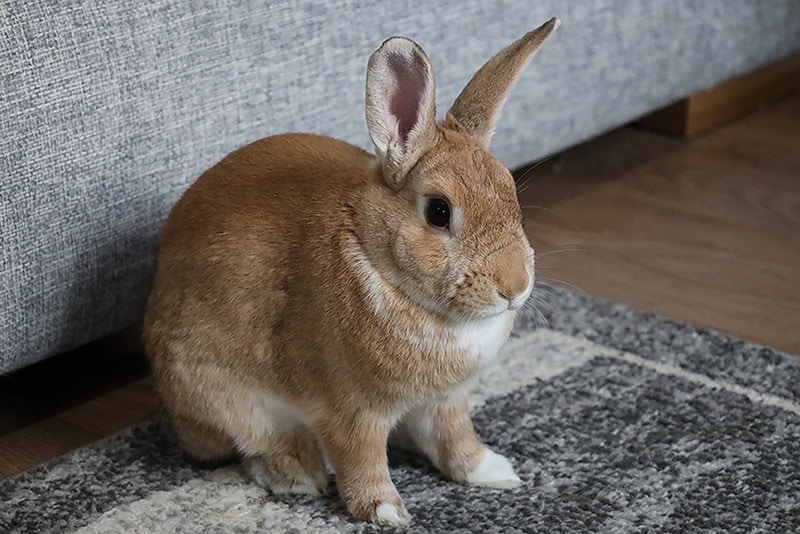
Pet Insurance
- $10–$35 per month
Pet insurance can provide financial protection against the costs of a pet getting ill or being involved in an accident. It is relatively common for dog and cat owners, as well as horse owners, to take out pet insurance, but less common for rabbit owners. Rabbit insurance policies are difficult to find but they can give you peace of mind and provide your rabbit with medical costs when needed the most.
Environment Maintenance
- $5–$15 per month
Rabbits can be litter trained because they are generally very clean animals. They will toilet in the same spot, so you can place a litter tray and negate the need to clean the bedding every day. Because rabbits are smaller than cats and produce less feces, they don’t use as much litter. However, there are some costs associated with maintaining your rabbit’s living environment and keeping them safe and comfortable.
| Litter | $5/month |
| Bedding | $10/month |
Entertainment
- $0–$10 per month
Rabbits don’t necessarily enjoy chasing tennis balls or hunting toy mice, but they do benefit from having chew toys and can enjoy playing with other toys, too. You can recycle some of your old cardboard items, but buying non-toxic wooden toys will provide your rabbit with something to chew and some entertainment. Always keep an eye on toys to make sure that there are no sharp bits or sections that might cause any kind of injury or choking hazard, and replace those that are badly damaged with new toys.
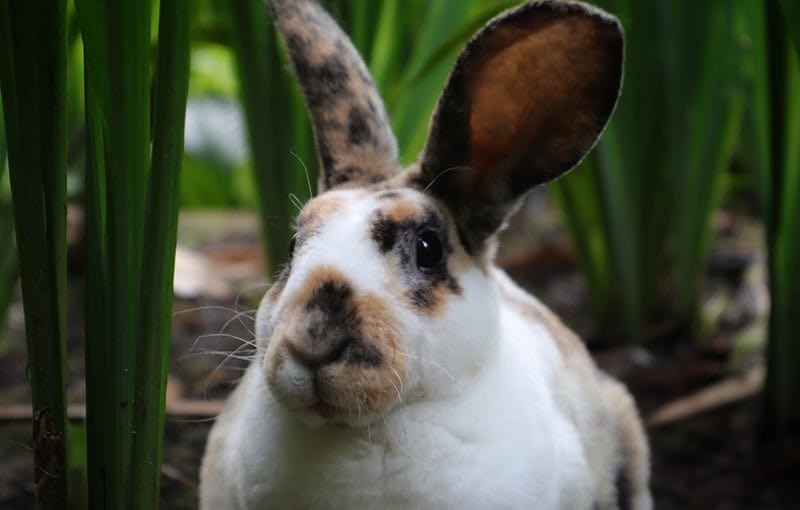
Total Monthly Cost of Owning a Rex Rabbit
- $50–$100 per month
Although they generally cost less than a dog or cat, rabbits cost more than a lot of potential owners think, and this is true of Rex Rabbits as well as other species. Remember that you should consider buying at least two rabbits, rather than keeping one on its own, and that you will need to provide a secure cage or hutch as well as somewhere for the rabbit to exercise. Food, toys, and health care costs make up the majority of the ongoing monthly costs when keeping a rabbit, and these can vary from around $40 to $100 a month, per rabbit.
Additional Costs to Factor In
There are some costs that you may not need to pay every month, and some that you may not need to pay at all. For example, if you are going away, you will need to ensure that your rabbit is cared for while you’re gone. They will need to be let out or put in their run for daily exercise, and they will need to be provided with regular food and clean water. If you have friends or family that are willing to take the rabbit while you’re away, or visit and perform the required duties, this won’t cost you anything. Otherwise, you may need to pay for a pet sitter to come and perform these duties. Pet sitting costs around $10 to $20 per day, which generally allows for a 30-minute visit.
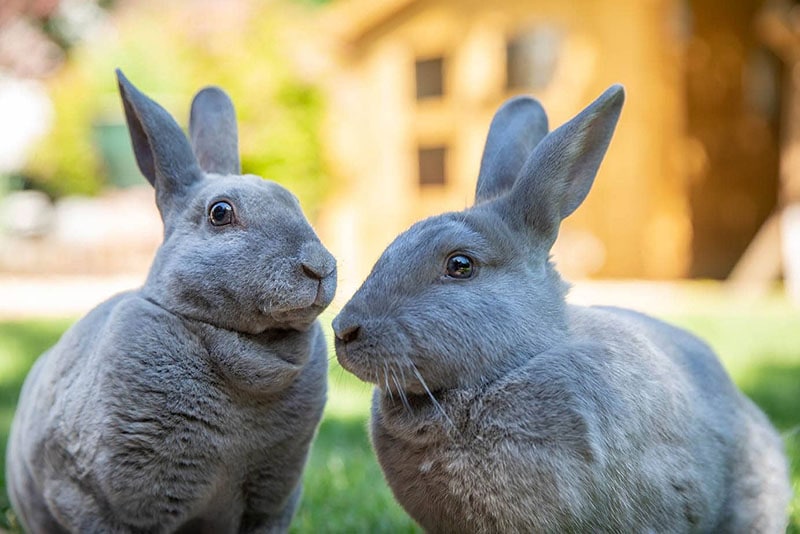
Owning a Rex Rabbit on a Budget
There are ways to save money when caring for a Rex Rabbit. When buying the rabbit, consider whether you really need a show-quality rabbit with award-winning lineage and whether you need a Mini Rex. Rex Rabbits can be bought from breeders or stores for as little as $25 if you’re happy with a pet Rex, rather than a show Mini Rex.
If you’re good with power tools and have access to materials, you can build a hutch yourself, potentially saving a couple of hundred dollars, and it is quite easy to build a secure, inexpensive run, which can save a little more money.
Use cardboard rolls and sturdy cardboard boxes as toys, and buy food and hay in bulk, ensuring that you only buy as much as you can use and don’t have to discard or waste any.
And, when you do go away, convince a friend, neighbor, or willing family member to pop in and care for your rabbit while you’re gone because this will be cheaper than paying for a professional pet-sitting service.
Conclusion
Rex Rabbits are attractive, docile rabbits that generally enjoy human company. They can make great pets. But, while a lot of potential owners view rabbits as being low maintenance because they live in a hutch or cage rather than among us, they can be more expensive to keep than you expect.
The hutch itself can cost $200, and the total initial costs will amount to around $100 to $500, which is substantially more than the cost of buying the rabbit itself. On an ongoing basis, you can expect to pay between $40 and $100 per month for a single rabbit, and you should bear in mind that rabbits are happier and healthier when they are kept in pairs or larger groups. Keeping more than one rabbit means costs will increase, although having two rabbits won’t necessarily cost twice the amount of a single rabbit.
Featured Image Credit: 286865878, Shutterstock


